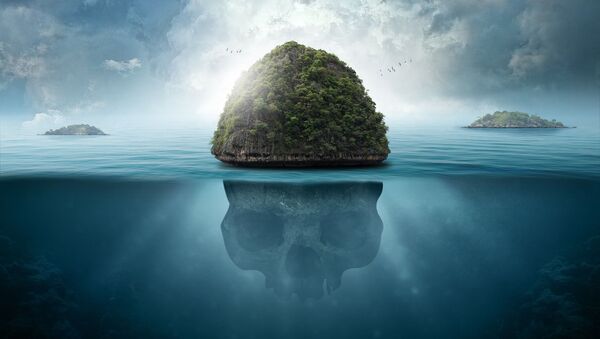A group of French scientists say that they had discovered a place on Earth where no life can exist despite the presence of water in the area.
In their findings published by the journal Nature Ecology & Evolution, the Diversity, Ecology and Evolution of Microbes (DEEM) team of biologists from French national research agency CNRS and the University of Paris-Sud said they made the discovery while visiting the “inhospitable” Dallol hydrothermal pools of northern Ethiopia, near the Eritrean border.
"Archaea, biomorphs and life limits at the geothermal field of Dallol", the 'behind the paper' story by Puri on our @NatureEcoEvo article on the Dallol multiextreme environment. pic.twitter.com/eyh5a3Ud9x
— DEEM team Orsay (@DEEMteam_Orsay) October 29, 2019
“We identify two major physicochemical barriers that prevent life from thriving in the presence of liquid water on Earth and, potentially, elsewhere, despite the presence of liquid water at the surface of a planet being a widely accepted criterion for habitability,” the researchers claimed.
Between 2016 and 2018, they deployed a spate of scientific techniques to search for any trace of life in the Dallol ponds and lakes system only to conclude that the combination of extreme levels of saline and acid there were too much for any organism.
The scientists explained that apart from the fact that the water in the Dallol area is extremely acidic and salty, it contains a huge amount of magnesium.
Our Dallol hydrothermal system microbial diversity paper just out @NatureEcoEvo. Despite abundant liquid water, we found two new life limits: no life in hyperacidic+hypersaline pools and in the Mg-rich Yellow and Black lakes https://t.co/A4hdV7XnZx pic.twitter.com/NbA35Xdauf
— DEEM team Orsay (@DEEMteam_Orsay) October 29, 2019
This confirms a theory that the water does not contain any harmful substances or bacteria because under such conditions, living cells are destroyed.
An earlier study of the Dallol area claimed to have uncovered some evidence of extremely tiny microbial life surviving against the odds.
The researchers expressed hope that their findings would add to restricting the presumed parameters for habitability, and would also serve as a warning about how scientists should interpret biosignatures “on Earth and beyond.”


